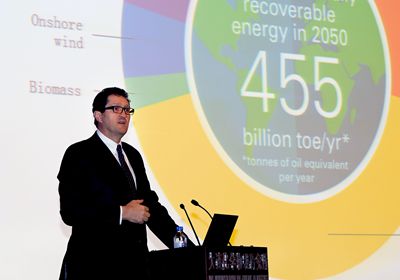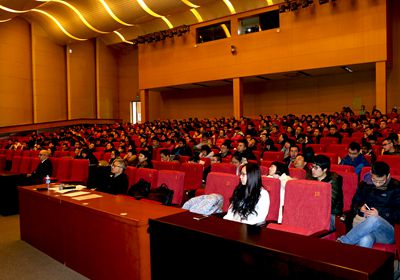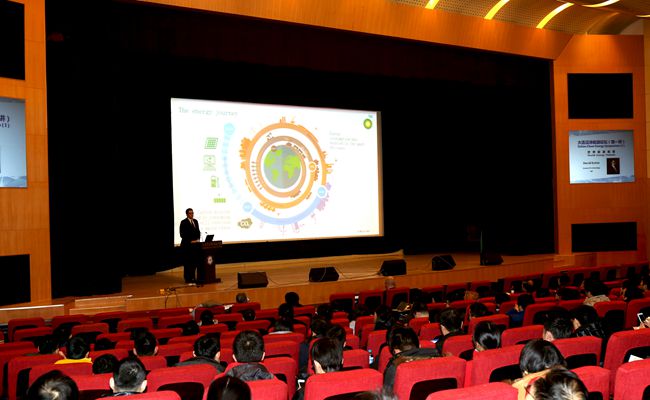In the afternoon of January 14, 2016, David Eyton, head of technology from British Petroleum (BP), gave a lecture named “World Energy Outlook” in DICP and it attracted more than 200 scientific staffs and students. BP has built strong collaborative relationships with DICP for several years. Prof. Xueming Yang delivered a welcome speech on behalf of DICP.


The Head of Technology from BP David Eyton Shows a Lecture Named “World Energy Outlook”(Photo by LIU Wansheng)
The energy outlook sets out how technological developments could shape and influence the way David identifies sources of energy and extract, convert, store and ultimately consume them over the next 35 years. Using insights from BP’s data and analysis, David introduced that energy consumption has doubled in the past 30 years, but energy resources are plentiful over the next 35 years, such as nuclear, solar, geotherm and so on. At the same time, he mentioned that carbon dioxide created by consuming fossils fuels will continue to be a major issue over the next few years. Following that, David pointed out energy technologies would play a significant role over the next 35 years, because technology will unlock future oil and gas resources, can make power cheaper and cleaner, and can make transport more energy efficient. Combining with date and analysis concerning materials, water, atmosphere, land, David delivered that the energy sustainability was changing and emerging technologies could transform the energy landscape. After the lecture, David had in-depth discussion and exchanges with researchers and students in several fields, for instance fuel cells, energy storing, BP’s developing core on energy.

The Head of Technology from BP David Eyton Shows a Lecture Named “World Energy Outlook”(Photo by LIU Wansheng)
As the head of technology, David Eyton is accountable for technology strategy and its implementation across British Petroleum (BP), and conducting research and development in areas of corporate renewal. In this role, David sits on the UK Energy Technologies Institute Board. David joined BP in 1982 from Cambridge University with an engineering degree. During his early career, he held a number of petroleum engineering, commercial and business management positions. In 1996, he was named general manager of BP’s North West Shelf interest in Australia. David later managed Wytch Farm in the UK and then BP’s gas businesses in Trinidad. Following that assignment, David was vice president of deepwater developments in the Gulf of Mexico. Besides, David is a fellow of the UK Royal Academy of Engineering, Institute of Materials, Minerals & Mining and Institute of Directors.(Text by QU Lijuan/ Photo by LIU Wansheng)